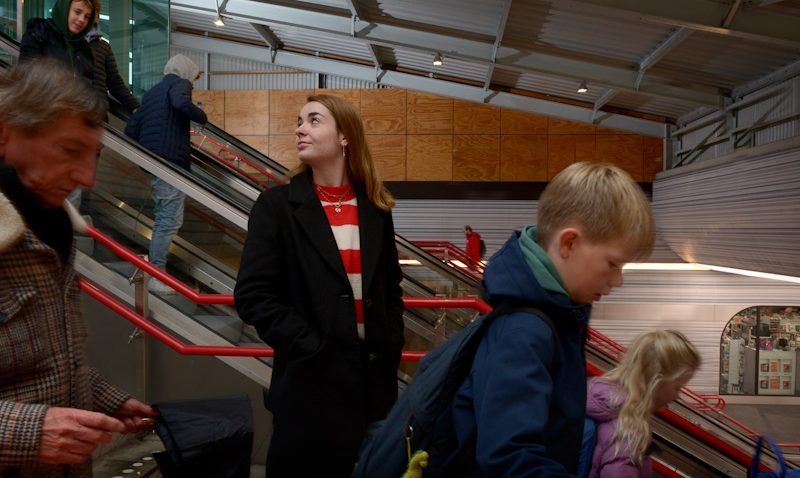One in five people is highly sensitive. At Windesheim this would translate to more than 5,400 students. Yet HSP have no place in Windesheim’s student aid services. Yara Meilink, an HSP herself, went looking for why this is the case.
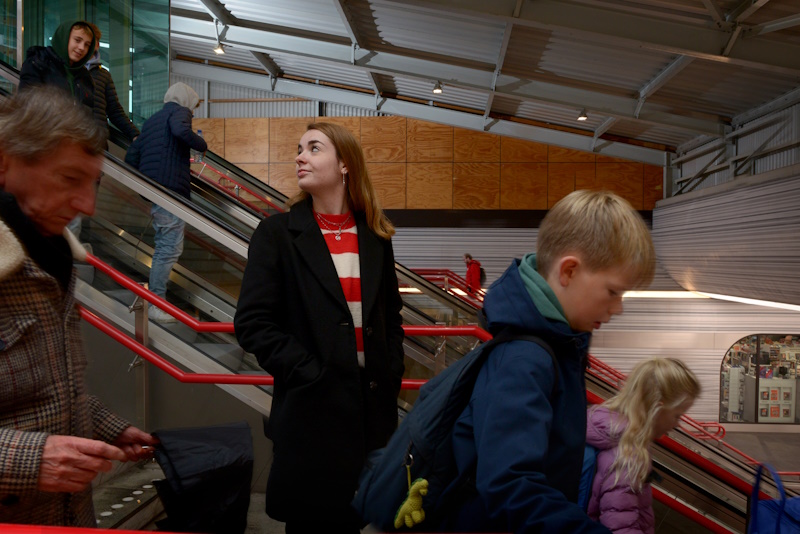
Since the beginning of my studies I have struggled with my high sensitivity. I get exhausted, stressed and distracted more quickly, am very perfectionistic and find many things scary. Studying takes me noticeably more energy than my fellow students. I know that the school offers extra facilities to students who could use an extra hand: students with a disability. But this requires a diagnosis such as AD(H)D or an anxiety disorder. High sensitivity is not included, while the complaints of highly sensitive people (HSP) can be serious. Stress complaints are especially common. In some cases it also leads to depression. If students continue to walk around with this burden, there is a chance that they will run out of energy after a while and that they will no longer be able to study at all. In the worst cases, students can no longer get out of bed, or they become really depressed. If the complaints of highly sensitive students can be so serious, why are they not part of student assistance at school? Wouldn’t it be better if we looked at the different types of students and their needs, instead of focusing on diagnoses?
HSP – What do you mean by that?
Highly sensitive people…
- Are empathetic.
- Are philosophical.
- They regularly feel overwhelmed by the large number of impressions in their environment. This causes them to become overwhelmed and lose overview.
- They often have difficulty with planning and managing time, they need structure and a fixed rhythm.
- Have stronger emotions and sharp senses.
- Get tired more quickly with a lot of information.
- Need more processing time.
- They are more likely to be anxious, tense or insecure, less assertive and prefer to avoid competition. Harsh punishment and criticism can be crushing.
HSP have great empathy and can experience the feelings of others as if they were their own. They are also often creative and driven. High sensitivity can therefore be a great advantage and bring talents with it. But, it can also be a burden. HSP are easily overstimulated and more often suffer from fear of failure or a negative self-image. They have a greater chance of ending up in burnout and according to some studies, concentration problems play a role more often.
I’m curious what my general student counsellor (GSC) thinks about this and I visit her in the Study Success Center. In Magda Lokhorst’s room, the buzzing of passing cars can be heard. There is a plastic lavender plant on the windowsill. When I ask her whether it is the school’s role to help students who are having difficulties, she nods in agreement. “As a school we have a duty of care, so that role is there. At the GSC’s office we try to create the preconditions that students need to receive education here.” That does have a limit: “If one in five is highly sensitive, that means 5,400 students at Windesheim.
“Is there really no place to go at school?”
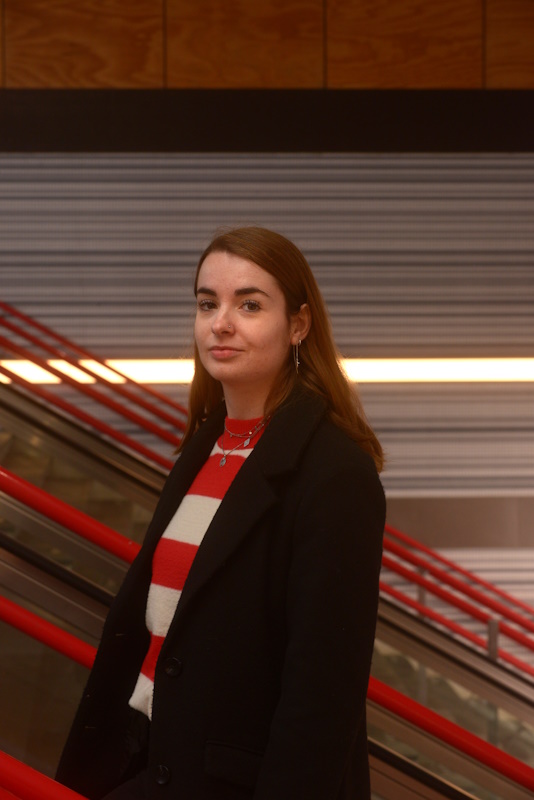
That is so many that we cannot do anything about it on an individual level, if I put it very black and white.” Lokhorst is already noticing that many students request extra facilities. ‘At some point the tide turns. Windesheim has more than 27,000 students, you cannot create quiet spaces for everyone, so you will have to turn things around by looking at how you can improve study conditions for all students. That is something we as a school can think about.’ Implement measures that help everyone and the group concerned will benefit from it, is Lokhorst’s message. Specific attention for high sensitivity does not seem to be happening at Windesheim yet, from what I hear. Although I understand Lokhorst somewhat, I still feel a bit disappointed. Making adjustments that benefit all students sounds great, but we are not there yet. Where can I go as a highly sensitive student right now?
Assess yourself
‘Unfortunately, no results were found for ‘highly sensitive’, appears on my screen when I search the Windesheim site. The search terms ‘hyper sensitive’ and ‘HSP’ also yield nothing. Is there really no place to go at school? I decide to ask my student counsellor from the Journalism study programme. In recent years I have only seen Egbert Hermsen a few times, but I know that he is always open to a conversation. I explain to him that I have never told him about my high sensitivity, because it is not a functional limitation. Why would I report it if the school doesn’t offer help or guidance? Lately I’ve been wondering if that thought wasn’t too black and white. After all, I did have a lot of stress, I was
easily overstimulated, tired and insecure and I clashed with teachers. They often did not understand that I struggled with group assignments and ambiguities, and found it strange that I did not settle for a six. “If I had said that I was highly sensitive, would you have been able to do something with that?” Hermsen is silent for a moment. ‘I always leave it up to the student to decide whether or not to share something like that, but as soon as someone does, I talk to them about it. If you are really struggling with it, I would refer you to Hanneke Versteeg, Inclusion and Student Welfare case manager. She could help you further.’
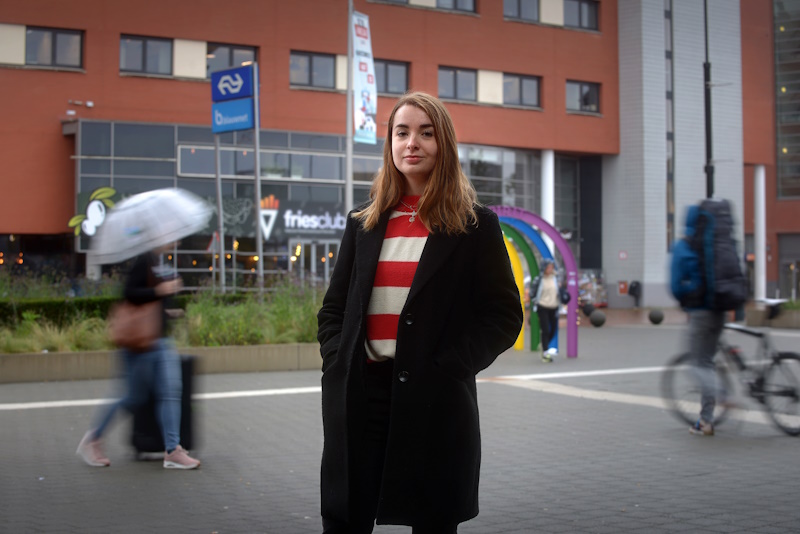
Cautiously optimistic, I make an appointment with Versteeg. She tells me that she thinks along with anyone who – for whatever reason – finds it more difficult to follow education. She also encounters highly sensitive students. ‘For example, I advise HSPs not to attend all the lessons if that takes too much energy. See what is more and less relevant to you.’ Because high sensitivity is not a diagnosis, there is less knowledge about it at school, Versteeg explains. ‘But I don’t need that specific knowledge either. At Windesheim we always ask the student what they need. I assume that they can assess that themselves.’ The difficult thing is that many highly sensitive students do not know that they are HSP, but do experience complaints. Even without a diagnosis, they will think with you about what the possibilities are. Versteeg: ‘Yes, but it is “nice” if there is a diagnosis. Then we can offer much more. You’re not entitled to a quiet room now, for example.’
HSP-café
I like that there is someone who can think with me. At the same time, I wonder if it is enough for the serious complaints I experience. This does not solve the overstimulation and heavy stress. I am about to end my search with some disappointment when I hear about the HSP café, which highly sensitive teacher Pauline Fellinger initiated on the Psychomotor Therapy study programme. Is there attention for high sensitivity at Windesheim after all? At the vending machine where Fellinger and I get tea, two teachers talk about a student with autism spectrum disorder (ASD). The student is unsure whether he should report his diagnosis to the GSC, says one of the two. I notice that Fellinger, like me, is quietly listening. “It remains a difficult choice for students, but experience shows that they really get help at school if they indicate it,” says the other. On the way to a consultation room, Fellinger notes: ‘Unfortunately, this help is not available for highly sensitive students who, without a diagnosis, do not fall within the scope of a functional disability.’
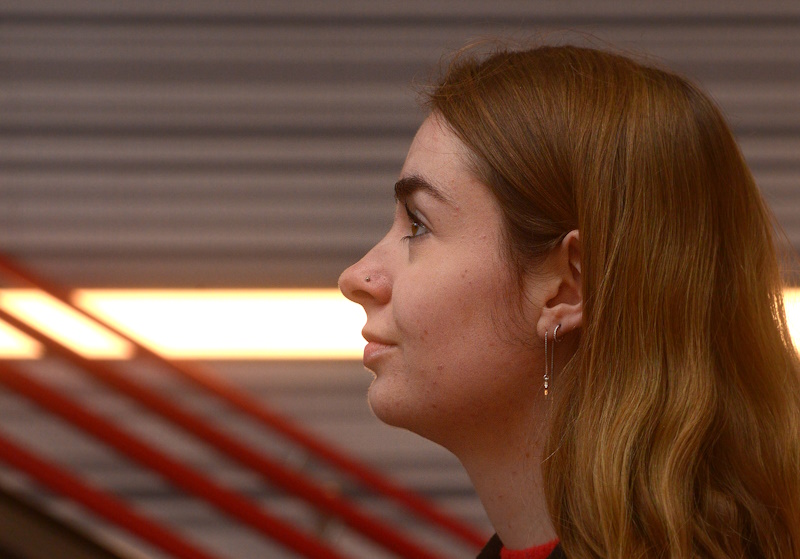
Fellinger saw that many students faced difficulties at school because of their high sensitivity. ‘Our study programme is part of the Christian Academy of
Physical Education (CALO); making noise, being expressive and being in the foreground seems to be the norm here. I was afraid that highly sensitive students would wrongly get the idea that their calm nature was less valuable.’ I recognize that from my journalism study programme. For me that was a source of insecurity. That’s why she founded the HSP café. Highly sensitive students can come together there and exchange tips. ‘But it’s not a real café. We just sit in a classroom where I hang up posters with information about the talents of HSP. I always arrange something to drink.’ Forty students showed up at the first HSP café last year. And yet they could only know of it by word of mouth. Fellinger: ‘I remember the first café as reassuring. The highly sensitive students felt that they could be there too. They learned what high sensitivity means. Many had never heard of it.’ Fellinger estimates that she usually has about ten highly sensitive students in her class, but generally only two or three know about it. I now understand why I didn’t find the HSP café on the Windesheim site. Fellinger isn’t advertising for it yet. She first wants to see how the café is running and what needs students have.
Dennis van Splunter: ‘A low-stimulus space would help’
When Dennis from Splunter suffered a burnout, he discovered that he is highly sensitive. Dennis experiences the world around him more intensely than many others.
‘As a man you are quickly seen as soft. That made me really doubt my masculinity. I made clothing and music choices that were not in line with what was seen as normal or cool for men and received a lot of negative reactions. It was a struggle to be myself.’ Now Dennis accepts himself and his high sensitivity more. This is partly due to his studies in Psychomotor Therapy (PMT). ‘During the study programme I learn a lot about myself and I regularly encounter myself. Because I do this in an environment of classmates and teachers who accept me, I notice that I am slowly accepting myself more. I don’t have to put on a mask. Here I can be myself.’
Dennis finds the hustle and bustle of being a student extra difficult. ‘A lot is expected of you, which was extremely tough, especially in the first year.’ The campus is also busy. Where others dive into the Sports Café after a long day, Dennis actively avoids it. ‘When I enter there, it feels like a wall of stimuli coming towards me.’ He misses a space on campus where he can relax. ‘I still see an opportunity for school there. A low-stimulus space would help.’
His high sensitivity helps Dennis in his study programme as a therapist. ‘I sense people very quickly, I can respond well to that. In addition, I notice that others easily come to me to talk and have a deep conversation, which is very nice as a therapist.’
Fellinger has worked at Windesheim for more than twenty-five years. In 2010 she dropped out due to a burnout. ‘Then I thought: when I come back I’m going to do things differently.’ But it is difficult to change things from above at Windesheim, she noticed, so she started to pay attention to high sensitivity in her own lessons. Students’ interest and understanding grew. Ultimately, this also reached her colleagues. ‘I went to the Study Success Center with three other teachers to ask whether studying with a disability could be expanded with other arrangements, but that turned out to be not that easy. The message was: there are so many things that bother students, we simply cannot have knowledge of everything. I understood that. So we proposed that we, as teachers of a therapy study programme, would provide the expertise so that highly sensitive students could be referred to us.’ But the Study Success Center has not yet responded to this. “That will just be the next step,” Fellinger says with her head held high. Until then, highly sensitive Windesheim students can go to the HSP café to meet like-minded people and exchange tips. The beginning is here.
Are you highly sensitive yourself, do you struggle with this in your studies and do you need help? Your GCS and case manager are happy to look at what is possible. Know that you can contact the Student Support Center. Asking for help helps.
Text: Yara Meilink
Photos: Jasper van Overbeek
